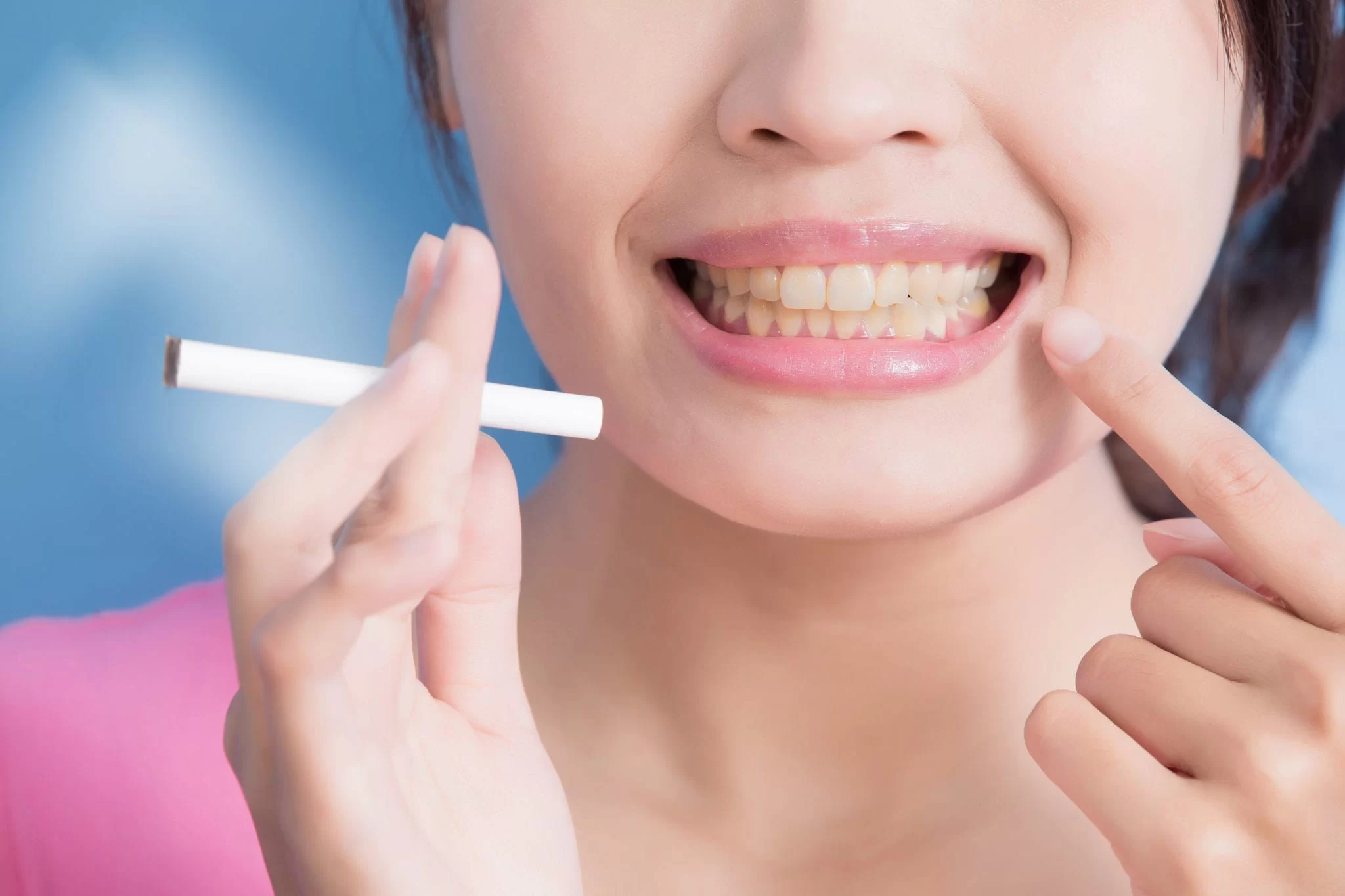
- The Impact of Smoking on Oral Health
- How Smoking Damages Teeth and Gums
- Oral Health Risks Associated with Smoking
- Tips to Improve Oral Health After Smoking
1. The Impact of Smoking on Oral Health
Smoking is one of the most significant factors that contribute to poor oral health. The chemicals in cigarettes not only harm your lungs but also affect your mouth, teeth, and gums. Smoking causes a reduction in blood flow to the gums, making it more difficult for your body to fight infections. This can result in gum disease, a leading cause of tooth loss. Additionally, smokers are more likely to develop mouth cancer, and smoking can exacerbate pre-existing oral conditions.
2. How Smoking Damages Teeth and Gums
When you smoke, the toxins from the cigarette smoke can stain your teeth, turning them yellow or even brown. The tar and nicotine in tobacco also encourage the growth of plaque and bacteria, which leads to gum disease, cavities, and tooth decay. Gum disease, if untreated, can lead to severe damage to your gums and even tooth loss. Smoking also hinders the healing process after dental procedures, making recovery slower and more complicated.
3. Oral Health Risks Associated with Smoking
Smoking can lead to a variety of oral health problems beyond stained teeth and gum disease. The risks include:
- Bad Breath: Smoking dries out your mouth, which leads to bad breath, also known as "smoker's breath." This is caused by the accumulation of bacteria in the mouth.
- Increased Risk of Oral Cancer: Smokers are at a much higher risk of developing oral cancers, including cancers of the tongue, mouth, lips, and throat.
- Weakened Immune System: Smoking weakens your immune system, making it harder for your body to fight off infections, including oral infections.
4. Tips to Improve Oral Health After Smoking
If you’re looking to improve your oral health after smoking, here are some helpful tips:
- Quit Smoking: The most important step you can take is to quit smoking. Your gums and teeth will start to heal, and your risk of oral health issues will significantly decrease.
- Regular Dental Checkups: Visit your dentist regularly to monitor your oral health and address any issues early.
- Maintain Proper Oral Hygiene: Brush and floss regularly to prevent plaque buildup, and use mouthwash to help freshen your breath.
- Drink Water: Drinking plenty of water helps wash away harmful bacteria and keeps your mouth hydrated.







 Westgate Dental Arts3.0 (2 review)
Westgate Dental Arts3.0 (2 review) Coventry Family Dental4.0 (247 review)
Coventry Family Dental4.0 (247 review) Familia Dental3.0 (1028 review)
Familia Dental3.0 (1028 review) Dr. Daniel S. Fife, DDS4.0 (31 review)
Dr. Daniel S. Fife, DDS4.0 (31 review) Dentistry At Suburban Square: Michael I. Wollock, DMD4.0 (1228 review)
Dentistry At Suburban Square: Michael I. Wollock, DMD4.0 (1228 review) Comfort Care Dental4.0 (1156 review)
Comfort Care Dental4.0 (1156 review) The Importance of Oral Health Education During Pregnancy for a Healthy Pregnancy
The Importance of Oral Health Education During Pregnancy for a Healthy Pregnancy Why Skipping Dental Checkups Can Lead to Bigger Oral Health Problems
Why Skipping Dental Checkups Can Lead to Bigger Oral Health Problems Best Tips for Brushing Your Teeth Properly for Healthy Gums: Essential Techniques for Oral Health
Best Tips for Brushing Your Teeth Properly for Healthy Gums: Essential Techniques for Oral Health Advantages of Porcelain Dental Restorations
Advantages of Porcelain Dental Restorations How Can Diabetes Cause Tooth and Gum Problems? Preventing and Managing Oral Health Issues
How Can Diabetes Cause Tooth and Gum Problems? Preventing and Managing Oral Health Issues Healthy Habits for Promoting Good Oral Health and Hygiene: Tips for a Healthy Smile
Healthy Habits for Promoting Good Oral Health and Hygiene: Tips for a Healthy Smile